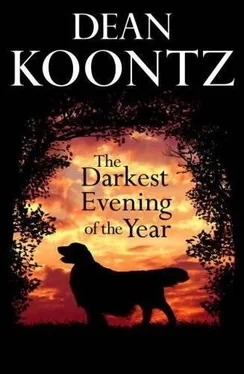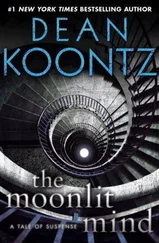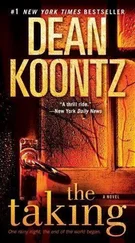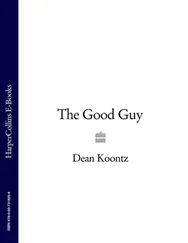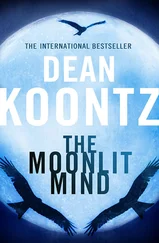Amy was sixteen when one day the usual energetic Nickie seemed tired, the next day still tired, and on the third day lethargic. She was diagnosed with hemangiosarcoma, a fast-spreading cancer that was too advanced for a surgeon to strip it all out or for chemotherapy to hold it at bay.
Nickie’s decline was swift. Her suffering would be certain if she was not given the mercy that is right for innocent animals; and no one could bear to see her suffer.
Because God is never cruel, there is a reason for all things. We must know the pain of loss; because if we never knew it, we would have no compassion for others, and we would become monsters of self-regard, creatures of unalloyed self-interest. The terrible pain of loss teaches humility to our prideful kind, has the power to soften uncaring hearts, to make a better person of a good one.
Mother of Mercy was a fine school as well as an orphanage. The passing of Nickie, dear mascot to all and sister to Amy, provided an opportunity not only to share but also to learn.
Those girls who felt strong enough-most did-were invited to assemble at twilight in the quadrangle, where the issue of animals’ souls was not debated but quietly accepted, and where prayers were said for Nickie. And during prayers, as twilight faded, candles were raised, hundreds of candles, while at the center of those assembled, Amy knelt beside her best friend to give comfort and to bear witness.
Sister Agnes Mary, the infirmarian, had volunteered to assist Dr. Shepherd, the veterinarian, in the administration of the two injections. The first would be a sedative to convey Nickie into a deep sleep, and the second would be the drug that stopped her heart.
Nickie’s favorite recreation-room sofa had earlier been placed in the center of the quadrangle, and Nickie, so weakened, had been carried to it. Amy knelt on the ground, face to face with this first dog that she had ever saved.
Estimated to have been three when she had limped up the meadow to her mistress, Nickie had been fourteen there in the last twilight of her fabled life, but she had still looked like a puppy, with little white in her face.
Only sixteen, Amy found a strength in herself that she had not known she possessed, strength to keep her voice calm and reassuring, even if she could not hold back the tears.
As if to say It’s all right, you’re doing great, Nickie licked Amy’s fingers, as she had licked them that first moment they had met in the meadow. A kiss hello, and now a kiss good-bye.
Nickie had always loved to have her face held firmly in cupped hands, thumbs stroking her cheeks, and would submit to this pleasure as long as anyone could be conned into providing it. Now Amy held that always-before comic face in her hands and looked into those expressive brown eyes. She said to Nickie, “You’re the sweetest dog who ever lived, and I have always been so proud of you, how smart you are, how quick to make a friend of everyone. I’ve loved you every moment, I couldn’t love a sister more, or my own child, or life,” and while she talked, the injections were administered, and Nickie went to sleep looking into Amy’s eyes. Amy felt the poor body twitch when the great heart stopped, just stopped, and Nickie went to God while waves of candlelight washed across the walls of the quadrangle and dazzled in windows and glimmered in grief-wet faces, and every flame said the same thing- A special dog passed this way, who brightened the life of everyone she met.
Seventeen years later, recounting all of this to Brian, Amy felt a grief almost as sharp as the pain she had felt that awful twilight. Although in the intervening years she had held so many dogs as they were put down, she wept and her voice broke often as she described the scene on the quadrangle.
A week thereafter, Sister Jacinta, “Sister Mouse,” had given Amy the locket with the profile of a golden retriever. She had worn it ever since.
Now, in the center of that quadrangle, a flat granite plaque, polished and black, marks where an urn of ashes is buried. A cameo inset in the marker matches the one on Amy’s locket. Under the cameo are carved these words:
IN MEMORY OF NICKIE,
THE FIRST MASCOT OF MATER MISERICORDIÆ,
WHO WAS EVERYTHING A GOOD DOG SHOULD BE.
Brian said, “I understand you so much better now-the commitment to dogs, the risks you take. Your life was chaos, and Nickie brought order to it, order and hope. You’re repaying that debt.”
Everything he said was true, but the story she had set out to tell was not yet entirely told.
What came after that night in the quadrangle took far greater courage to discuss. She had not spoken of the next part to anyone in more than eight years.
In telling him of her first dog, Amy had discovered an intensity of emotion greater than she had expected. Shaken by the depth of that revisited grief, she didn’t feel that she could tell him the rest of it now.
She was tired, exhausted. So much had happened in-what?-maybe nineteen hours, and another busy and emotional day most likely lay ahead of them.
Although she had steeled herself to tell it all, she could not proceed to the end. Better to wait now until they had found Brian’s daughter and brought her into his life, where she belonged.
Gunther Schloss, hired killer and pilot and happy anarchist, with a wife in Costa Rica and a second wife in San Francisco, had a girlfriend in Santa Barbara. Her name was Juliette Junke, pronounced junkie, which was ironic because she was so adamantly opposed to the use of illegal drugs that she had once castrated two small-time dope dealers who had sold marijuana to her niece.
Juliette Junke did business under the name Juliette Churchill. She was a mortician. She, her sister, and her two brothers owned and operated Churchill’s Funeral Home, an elegant and stately facility with four viewing rooms that were frequently in use at the same time.
Although the funeral business turned a profit, the Churchill clan moonlighted by smuggling terrorists-among other things-in and out of the United States in specially designed caskets that contained bottled oxygen and a clever system for collecting and storing the urine of the terrorists therein transported.
Many murderous thugs just hiked across the unprotected border or used international airlines and-wearing T-shirts that proclaimed DEATH TO ALL JEWS in Arabic-breezed through U.S. checkpoints, where highly suspicious federal security personnel strip-searched Irish grandmothers and Boy Scouts on field trips.
Juliette and her family specialized in the smuggling of those terrorists who were so notorious and whose faces were so well known to police organizations worldwide, they couldn’t even risk traveling in disguise and must be shipped on missions of jihad while posing as embalmed cadavers. These were the most successful of all terrorists, of course, and therefore the richest, and they paid well.
Arriving in Santa Barbara after viewing hours at the funeral home, Billy Pilgrim met Juliette at the garage entrance. He pulled the Shumpeter Cadillac into an empty bay in the row of black hearses.
Juliette Junke-Churchill was a good-looking woman, terrific-looking for a mortician. She reminded him of a young Jodie Foster: those fine cheekbones and those blue eyes that with just one wink could set your heart racing or, with one tear, break it.
Juliette probably did not cry much-or ever-and she would never do anything as coy as wink. She looked soft, but she was hard. If she claimed to be able to crack walnuts with her thighs, Billy would want to watch but only while wearing goggles to protect against walnut-shell shrapnel.
She greeted him with the nickname she had given him-“Bookworm, you are a sight for sore eyes”-and they hugged because everyone felt they had to hug Billy and because Billy didn’t mind hugging someone as delectable as Juliette.
Читать дальше
Конец ознакомительного отрывка
Купить книгу
